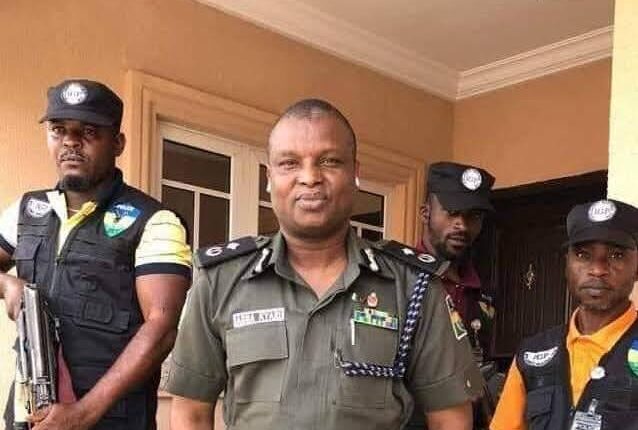
By Comrade Victor Ojei, Lead Activist for Young Nigerian Rights Organization. Feel free to WhatsApp us via 08038785262
In the heart of Nigeria’s legal landscape, the recent incarceration of Deputy Commissioner of Police (DCP) Abba Kyari has ignited fervent discussions among citizens and civil society organizations. As a Lead Activist for the Young Nigerian Rights Organization, I find it imperative to address the complexities surrounding this issue and advocate for a path that aligns with justice, fairness, and the collective well-being of our nation.

DCP Abba Kyari, often referred to as a ‘Super Cop,’ undeniably played a significant role in reducing kidnapping and criminal activities during his tenure as the head of the Nigerian Police Intelligence Unit. However, the subsequent surge in crime, especially in the North, following his apprehension and replacement has sparked concerns among the public and stirred debates within our community.
In advocating for fairness, it is crucial to refrain from downplaying the serious allegations against Kyari. Our focus should be on ensuring a transparent and just legal process, respecting the rule of law and upholding the principles that form the bedrock of our democracy. A fair trial not only safeguards justice but also reinforces public trust in the institutions entrusted with our safety and security.
As advocates, we must recognize Kyari’s positive contributions while actively engaging in discussions that center on broader systemic improvements within the Nigerian Police Force. It is our duty to foster a dialogue that not only scrutinizes an individual’s actions but also encourages a commitment to reform and accountability within our law enforcement agencies.
Social media comments have echoed concerns about the void left by Kyari’s absence, alleging that a suitable replacement has not been found. It is crucial to channel this sentiment toward a constructive conversation about the urgent need for a competent and efficient police force. This includes advocating for the development of a new and effective Special Weapons and Tactics (SWAT) team, addressing the gaps left by the disbandment of the Special Anti-Robbery Squad (SARS).
In closing, as we navigate these turbulent times, civil society organizations like ours play a pivotal role in fostering a balanced narrative. The delicate balance lies in recognizing past achievements while simultaneously demanding accountability and reform to build a safer, more just, and equitable future for our beloved Nigeria. It is a journey that requires unity, resilience, and a steadfast commitment to the principles that define us as a nation.


